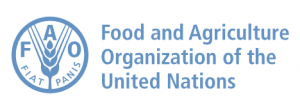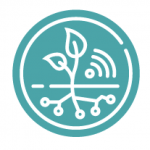16 October 2021
World Food Day (WFD) was founded by the United Nations’ (UN) Food and Agriculture Organization (FAO) in 1945, and has been observed annually, every October 16, since 1981. The event was established to increase awareness of world hunger and poverty and to inspire solutions for world change.

Our Actions are our Future
Better production, better nutrition, a better environment and a better life.
World Food Day (WFD) 2021 is being marked a second time during the COVID-19 pandemic. From the disruption of agri-food systems and a global economic recession to an increase in food insecurity and inequality, the pandemic has exposed the fragility of our societies, but it has also shown how people can come together towards a common goal. As a global community, we can overcome these challenging times and create a better future – one that is more sustainable for present and future generations.
This year’s action-oriented campaign focuses on raising awareness of the need to support the transformation to more efficient, inclusive, resilient and sustainable agri-food systems for better production, better nutrition, a better environment, and a better life, leaving no one behind.
Why care?
One in 10 people are affected by unsafe food supplies contaminated by bacteria, viruses, parasites or chemical substances.
14 percent of the world’s food is lost due to inadequate harvesting, handling, storage and transit, and 17 percent is wasted at consumer level.
Why should Kersia be your trusted partner?
Kersia is a global leader in biosecurity and food safety with value added products and solutions to prevent diseases or contamination in both animal and humans at every stage of the food supply chain.
Pure Player of Food Safety
Our objective
To improve the technical and economic performance of customers by offering them more and more responsible solutions thus ensuring food safety.
Our values
Transparency
We build long-term relationships by being open, ethical and fair. In a field confronted by sanitary and compliance issues, people trust us since we are true to our word.
Sharing
We learn and progress from the experience of customers, colleagues and partners. Honest communication amongst people with different experiences helps us develop new solutions and make a difference.
Proficiency
We eagerly engage our clients to identify issues and focus on their needs to get it right. We deliver reliable results and comprehensive performance by mobilizing the best of our skills and technical talent.
Foresight
We constantly anticipate transformational change. We think “outside the box” when confronted with new challenges. It is in our nature to innovate and to approach our work with fresh but sustainable options.
HOW TO OBSERVE WORLD FOOD DAY
1. Give to a local food bank
In the United States it’s estimated 1 in 7 people rely on food banks as their primary or supplemental food source—many of these are working families who suffer from underemployment and cannot afford the groceries needed to help their family live healthfully. The top requested items for food banks are healthy, non-perishable items high in protein, such as canned or dry beans, peanut butter, rolled oats, low-sodium soups and vegetables and tuna canned in water.
Find a Food Bank
Moisson Montréal
2. Support small scale farms
Ninety-eight percent of the farms in the world are family farms. They usually practice sustainable agriculture with plants that are indigenous to the area, rotating crops and limited use of pesticides. Sadly, many family farmers are unable to produce the variety of crops needed for their own survival and without support, can suffer from malnutrition themselves. On World Food Day, shop locally and support family farms.
Additional information on agrifood systems
WHAT IS AN AGRI-FOOD SYSTEM
The agri-food system covers the journey of food from farm to table – including when it is grown, harvested, processed, packaged, transported, distributed, traded, bought, prepared, eaten and disposed of. It also encompasses non-food products (for example forestry and biofuels) that also constitute livelihoods and all of the people as well as the activities, investments and choices that play a part in getting us these food and agricultural products.
Four Betters – the pathway to sustainable agri-food systems
The four betters represent FAO’s contribution to the SDGs and other high-level aspirational goals. They reflect the interconnected economic, social and environmental dimensions of agri-food systems:
 |
Better production Ensure sustainable consumption and production patterns, through efficient and inclusive food and agriculture supply chains at local, regional and global level, ensuring resilient and sustainable agri-food systems in a changing climate and environment. |
 |
Better nutrition Ensure sustainable consumption and production patterns, through efficient and inclusive food and agriculture supply chains at local, regional and global level, ensuring resilient and sustainable agri-food systems in a changing climate and environment. |
 |
Better environment Protect, restore and promote sustainable use of terrestrial and marine ecosystems and combat climate change (reduce, reuse, recycle, residual management) through more efficient, inclusive, resilient and sustainable agri-food systems. |
 |
Better life Promote inclusive economic growth by reducing inequalities (urban/rural areas, rich/poor countries, men/women). |
Why should you care about transforming agri-food systems?
They employ 1 billion people worldwide, more than any other economic sector. Moreover, the way we produce, consume and, sadly, waste food exacts a heavy toll on our planet, putting unnecessary pressure on natural resources, the environment and climate. Food production too often degrades or destroys natural habitats and contributes to species extinction. Such inefficiency is costing us trillions of dollars, but, most importantly, today’s agri-food systems are exposing profound inequalities and injustices in our global society. Three billion people cannot afford healthy diets, while overweight and obesity continue to increase worldwide.
Nourishing 10 billion people by 2050
The COVID-19 pandemic has underlined that an urgent change of route is needed. It has made it even harder for farmers – already grappling with climate variability and extremes – to sell their harvests, while rising poverty is pushing an increased number of city residents to use food banks, and millions of people require emergency food aid. We need sustainable agri-food systems that are capable of nourishing 10 billion people by 2050.

WHY WORLD FOOD DAY IS IMPORTANT
It helps raise awarenessIt’s a reminder hunger can be endedIt brings attention to eating mindfullyMillions of people suffer the health consequences of malnourishment, which damages growing bodies and brains. That’s why it’s important to draw attention to this health crisis—and by doing so, ensure food security and availability of nutritious foods to everyone on the planet.
Our planet currently produces enough food to feed every person on the planet. However, 1.3 billion tons of food is lost or wasted annually (that’s roughly 20% of the food produced). World Food Day acts as an impetus to get involved, reduce food waste, and help provide sustenance for millions.
Food is a great source of pleasure and entertainment, but sometimes we can overindulge. if we return to the focus of eating mindfully we can reduce the amount food that’s wasted and the number of people going to bed hungry. World Food Day serves as a reminder to refrain from overeating and to make choices that are ecologically sustainable.
SOURCES:
We are what we eat: Transforming diets to transform agri-food systems
World Food Day (nationaltoday.com)
Moisson Montréal (moissonmontreal.org)
Banques alimentaires Canada (banquesalimentairescanada.ca)


